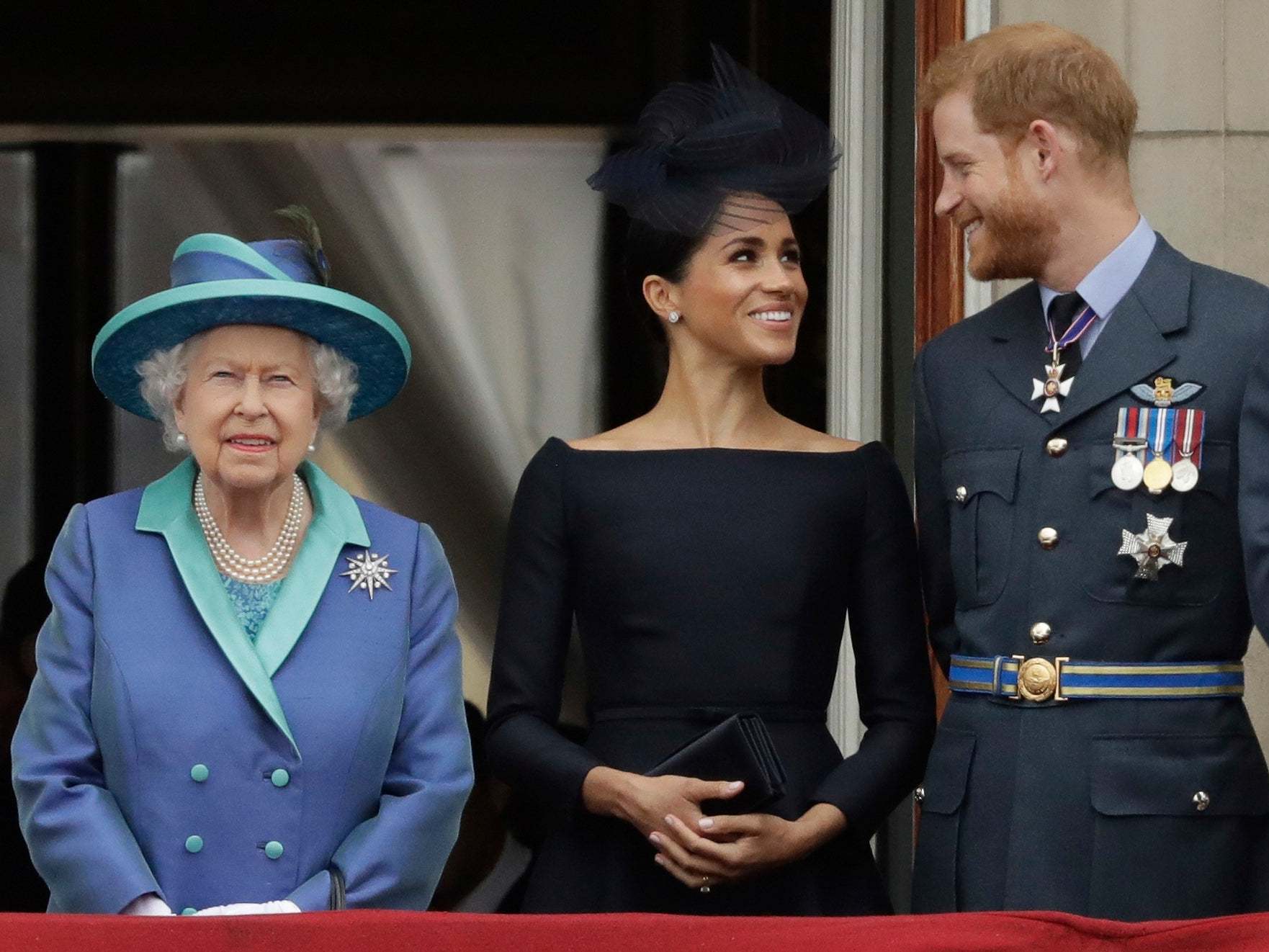Time to vote on the future of the monarchy – and change Britain’s constitution
Send your letters to letters@independent.co.uk

Clive Lewis MP has made a valuable suggestion, namely that we have a referendum on the monarchy. In the wake of the Prince Andrew and Harry/Meghan episodes, a serious debate on this can surely not now be avoided.
It should, however, be done in the context of an equally necessary discussion about the British constitution in its entirety.
There are many long-standing issues in this area crying out to be addressed – for example: the House of Lords, the voting system, our hybrid devolution arrangements. Last but not least, with Boris Johnson as PM, we need a cast-iron guarantee on the independence of the judiciary.
Rev Andrew McLuskey
Ashford, Sussex
How to pick a winner
With the Labour leadership contest now under way it is interesting to contrast the differing approaches to party leadership taken by the two major parties.
For the Conservative Party, leadership qualities are all important. The MPs and members ask: “Will this person lead us to a general election victory?” Policies are less important, as long as the candidate is vaguely conservative. So we get a leader like Boris Johnson, who trumpets an election-winning slogan but appears to be willing to discard the last 10 years of Conservative economic policy to gain votes.
However, for the Labour Party, ideology is paramount. The leader must have the correct degree of “leftness”, that is the degree of leftness currently in vogue with the party faithful. Leadership qualities are totally unimportant. And so we get a leader like Jeremy Corbyn, who steers the party significantly to the left but has no rapport with a large proportion of the electorate.
But over the last few decades, each party has, just once, departed from their traditional approach; the Conservative Party when they opted for the ideology of Margaret Thatcher and the Labour Party when it opted for the charismatic leadership of Tony Blair. And each of those leaders went on to lead their party to three successive election victories, the only occasions on which this has been done. Maybe there is a lesson here for our political parties.
David Booker
Sevenoaks, Kent
Time for a pay cut
The question is not why Samira Ahmed was paid less than Jeremy Vine but why was he paid more for being a so-called celebrity. Three are countless examples of unjustified levels of pay being made on the basis of popularity, influenced no doubt by threats from “talent” or their agents to go to a rival channel.
Maybe it’s time for publicly funded organisations to call their bluff. Unfortunately, the market forces argument is trotted out to justify unfounded high pay, not just for TV presenters but for senior executives across a wide spectrum of industries.
Geoff Forward
Stirling
Stop ‘schoolifying’ childhood
Your letter from the Scottish Children’s Services Coalition dovetails closely with children’s author Michael Rosen’s advocacy of children’s outdoor play. It is tiresome and disheartening in the extreme that these points keep having to be made to a culture that clearly has great difficulty in hearing and assimilating the message, and then doing something about it.
For some years, the intrepid advocate of children’s well-being, author Sue Palmer, has been doing brilliant work in Scotland with her Upstart! organisation, which has been advocating a bespoke kindergarten stage which challenges the highly damaging “schoolification” of early childhood that does so much damage to children’s mental health. Britain’s early school starting-age, with its emphasis on early cognitive learning, is the elephant in the room that anyone who takes children’s well-being seriously really must address.
It was over 13 years ago that Sue Palmer and I began co-organising a number of open press letters, signed by several hundred global authorities in the field of children’s well-being. In those letters we made a clear link between the age-inappropriate pressures to which children are subjected in hyperactive modern culture, and their emotional well-being and mental health.
We greatly welcome The Independent once again foregrounding these vital issues. But how long is it going to take for children’s holistic well-being to take precedence over the “the needs of the economy”, politicians’ abject failure to address these issues in their policy-making, and modern culture’s pervasive addiction to the superficial instantaneity of the anti-social and anti-human impact of so-called “social” media technologies?
Dr Richard House
Stroud
Littering problem
From the CES 2020 technology show in Las Vegas comes another one of those surely-you-are-joking devices that shows how much science can be misused. It’s an AI-capable intelligent kitty litter box that can monitor and report your cat’s behaviour and “output” from LuLu Pet (or should that be LooLoo Pet?).
It looks for concerns with the cat’s body in places where cat owners cannot, or don’t want to. Which lucky scientists got to spend their years of training developing this and the technology to evaluate the cat’s outputs?
On the economics point, while researching this, a Google check showed you can spend more than $1000 for a litter box, but it is automatic. Surely with so many people who can’t afford food, there are better ways of spending your money.
Let’s encourage the scientists to work on curing diseases and improving food crops and respect the cat’s privacy.
Dennis Fitzgerald
Melbourne





Join our commenting forum
Join thought-provoking conversations, follow other Independent readers and see their replies